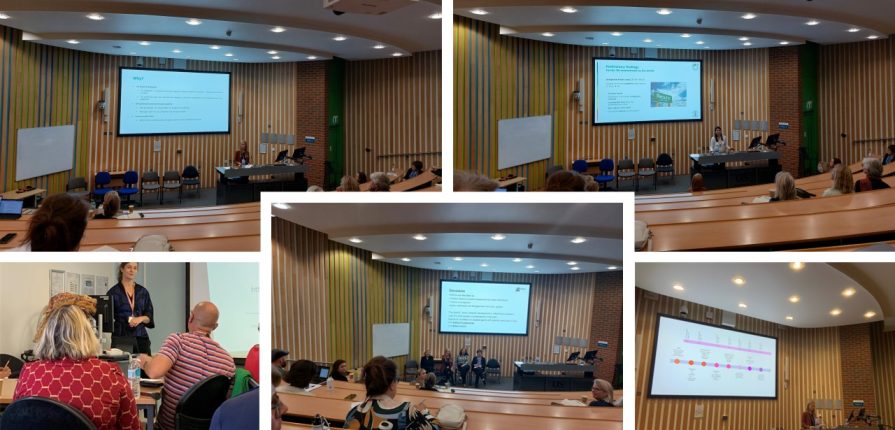The European Scientific Association on Residential and Family Care for Children and Adolescents (EuSARF) 2023 Conference is not just a gathering of scholars and researchers but a platform for sharing groundbreaking insights and knowledge. Experiences of risk and trauma within and beyond the family often intersect with stigma, discrimination, and social inequalities. The risk of disadvantage may be exacerbated by discrimination linked to poverty, ethnicity, gender, and sexuality, as well as the stigma of child welfare intervention itself. EuSARF 2023 addressed these critical themes through discussions across countries, reflecting together on the role of child welfare services in challenging inequity and enabling social justice for people whose life chances may be jeopardized by risks within and beyond the family. Among the participants was the Center for Research on Discretion and Paternalism (DIPA), which participated throughout the conference.
DIPA’s team of researchers and PhD candidates participated at the conference on Tuesday, September 12th, and remained actively engaged until Friday, September 15th. Over the course of these four days, they presented a series of sessions that delved into their research on Child protection.
On Wednesday the 13th of September, the stage was set for an enlightening symposium titled “Adoption, Social Justice, and Equity.” The symposium was spearheaded by Dr. Hege Stein Helland who presented her, Professor Katrin Križ, and Professor Marit Skivenes,’ paper “Gauging the Child’s Presence and Voice in Adoption Proceedings of Children from Care in Seven European Countries: Applying a Child Equality Perspective”. Researcher Audun Gabriel Løvlie‘ discussed his paper “Children’s views in judicial proceedings” in a session on Young People’s Perspective. Finally, PhD candidate Frøydis Petersen Jensen contributed in a poster session, where she presented her research paper “Unraveling Nordic perspectives on different types of child participation in family law court proceedings.
On Thursday, September 14th, the spotlight turned to the crucial topic of “Social Inequality and Poverty” where Professor Marit Skivenes presented a study based on the paper “Family poverty, parenting behavior, and child welfare involvement: A global comparative analysis.” The paper was written by Professor Marit Skivenes, Professor Jill Duerr Berrick, and Professor Rami Benbenishty and offers valuable insights into the complex dynamics at play in child welfare. Additionally, in a session on Decision Making in Child Protection, PhD candidate Barbara Ruiken held a presentation on her paper “A Tale of Two Cases – Investigating Reasoning in Similar Cases”.
The final day of the conference, Friday, September 15th, was marked by a symposium dedicated to “Child Protection and Human Rights.” Dr. Hege Stein Helland to presentations based on two papers titled: “Child Protection and Human Rights” and “The ECtHR and the bureaucracy: Implications of International Litigation on Norwegian Child Protection Practice,” which offered a unique perspective on the intersection of international litigation and child protection practices. Dr. Hege Stein Helland and Professor Marit Skivenes also took center stage to discuss their paper titled ” Family Life and Child Protection in the European Court of Human Rights (ECtHR).” Later, PhD candidate Mathea Loen presented her and Professor Marit Skivenes’ paper “Legitimacy and normative foundations of child protection systems in six European countries,” shedding light on public attitudes and views concerning child protection in different European countries.
Throughout the conference, DIPA’s researchers had project meetings with external partners and explored diverse aspects of the subject, ranging from adoption and social justice to child protection and human rights. These contributions exemplify DIPA’s commitment to conducting impactful research that informs and improves the lives of children and adolescents, both in Norway and beyond.

